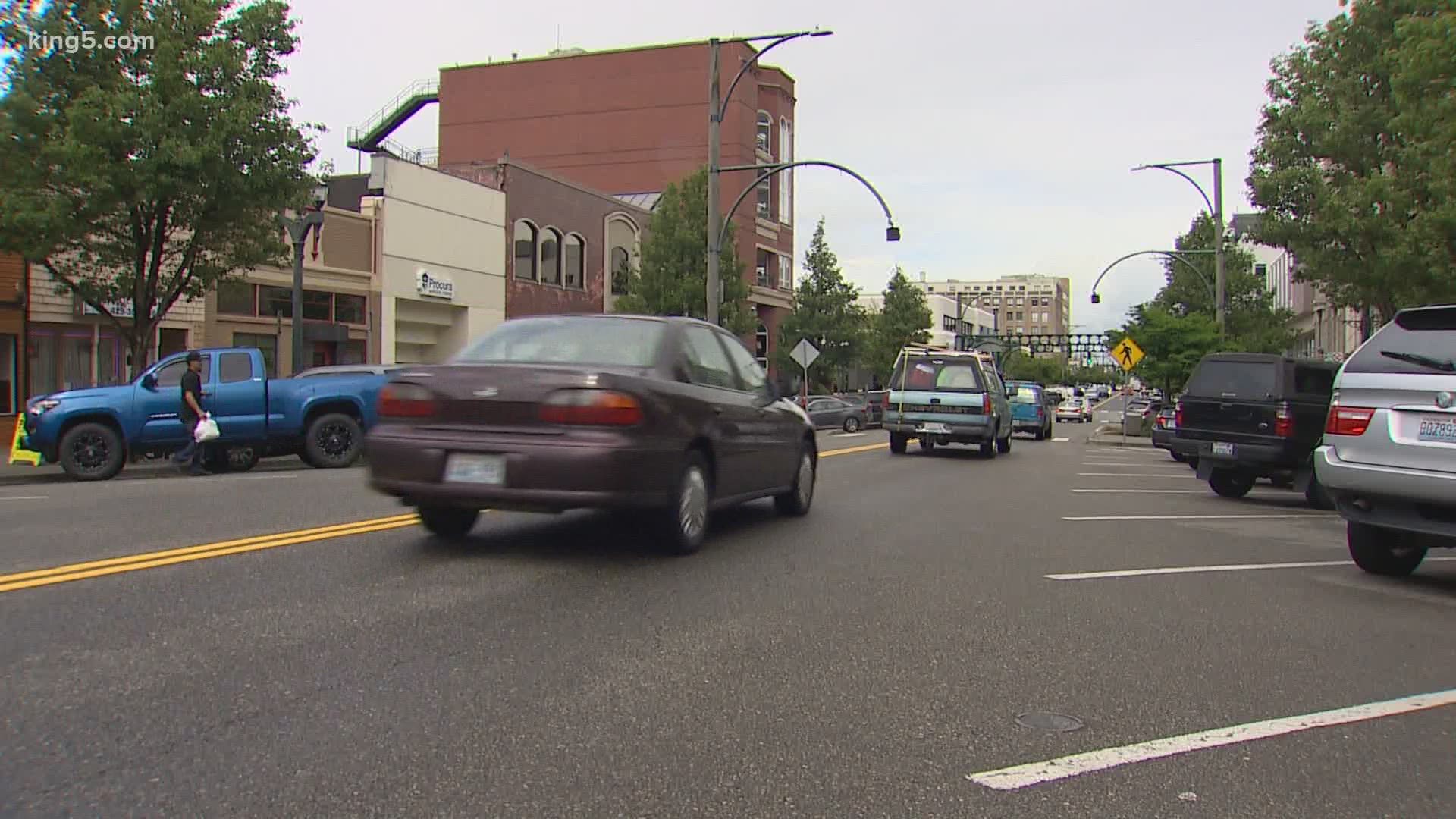EVERETT, Wash. — Just over 160 employees of the city of Everett have lost their jobs or been furloughed, as a result of economic losses caused by the coronavirus pandemic.
Mayor Cassie Franklin said most of the city’s revenue comes from sales tax, and business and occupation tax (B&O Tax). But with most shops and restaurants closed during the pandemic the city is projecting $14 million in losses.
In Everett, 80 employees were furloughed, and 81 were laid off. It’s part of an effort to save their already struggling budget.
“Going into this we were facing a structural deficit for 2021 anyway, so we knew very difficult decisions were ahead, but this crisis brought those difficult decisions to the immediate term, and we had to make some very difficult cuts,” Franklin explained.
Most of the cuts went to recreational programs, hitting the Carl Gipson Senior Center, swim center and the library the hardest.
“We focused our reductions on areas that are not able to operate anyway under the current ‘Stay Home, Stay Healthy’ order and kind of the restrictions of this pandemic. So, even though we move into phase two and three, a lot of these programs aren’t able to provide services at this time,” she said.
The city did not make cuts to the Everett fire and police departments, citing their public health role during the pandemic.
“We did not cut uniformed police or firefighters, during this. And I wouldn’t recommend we cut first responders in a global pandemic where there is so much at stake and public safety needs to be a priority,” said Franklin.
The Washington State Council of County and City Employees, a union representing 400 City of Everett workers wrote an open letter to Franklin, saying the city should have done more to prevent jobs from being lost, calling the decision "draconian."
Franklin responded saying the cuts are necessary.
“They are severe cuts and I feel for every team member that we’ve lost and the families that have been impacted by those lost jobs," she said. "We had no other choice but to reduce the workforce. We have to balance our budget.”
Other cities in Snohomish County are also making changes and cuts to help with budget shortfalls.
Marysville Mayor Jon Nehring said the city went into the pandemic in a strong financial position, but now is expecting a 12% drop in overall revenue.
“We have put in strong curbs on future spending, offered an early retirement package to eliminate some future payroll costs, and immediately eliminated spending on non-essential projects and services," Nehring said in a statement to KING 5. "We will monitor closely as things progress and respond quickly if further reductions are necessary.”
Arlington City Administrator Paul Ellis said that is city expects a 20% sales tax revenue loss for 2020.
“To compensate for the lost revenue we are making some adjustments to expenses in non-essential areas. We will hold off on replacing three open positions, one in maintenance and two administrative and will freeze and hiring until future notice. In addition, we have suspended travel and training other that what is required to maintain professional certifications and required continuing education,” Ellis said in a statement to KING 5.
And the city of Bothell is also making cuts to compensate for a lack of revenue, according to a statement on the city website.
“We are still analyzing revenue projections for 2020 and there are still many unknowns right now, but we are forecasting at least a $5.4M shortfall in our general fund just this year," Bothell's statement read. " With business closures, construction slowdown, and mandatory social distancing measures, we expect significant decreases in sales tax, permit and review fees, park and sports field rental fees, and program income.”
The city has laid off and furloughed some employees to help with the budget shortfalls in Bothell.
Franklin said she hopes to bring back as many jobs and services as possible, but for now there is no timeline on when that will be.
“None of these were cuts I wanted to make. I think they were necessary. I look forward to bringing as many back, as soon as we can safely do so, and as we can afford to, but I think that this is the reality we’re in. That as a full-service city, we can’t continue to do all of the work without adequate revenue to support it,” she said.

